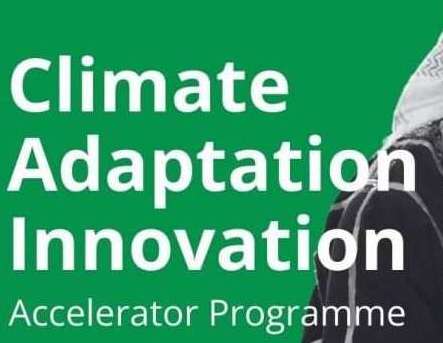Introduction
The WFP Innovation Accelerator, with the support of the Adaptation Fund, has introduced the Climate Adaptation Innovation Accelerator Programme. This initiative is part of the Adaptation Fund Climate Innovation Accelerator (AFCIA) partnership, aimed at identifying, supporting, and scaling high-impact innovations to enhance climate adaptation in vulnerable regions.
The Importance of Food Systems in Climate Adaptation
The food system, which includes all actors and value-adding activities involved in natural resource management, production, transformation, distribution, and consumption, plays a critical role in climate adaptation. Each stage of the food value chain faces unique challenges due to the impacts of climate change. The Climate Adaptation Innovation Accelerator Programme addresses these challenges by promoting innovative solutions that enhance resilience and adaptability.
Call to Innovators
Innovators, entrepreneurs, and changemakers are encouraged to present groundbreaking solutions to drive resilience, enhance climate adaptability, and promote sustainable development in affected communities. The programme aims to support high-potential ventures with funding, mentorship, and hands-on support, preparing them for successful scaling.
Fostering Collaboration and Knowledge Sharing
The accelerator programme aims to foster local and global collaborations, increase knowledge and evidence for climate adaptation, and promote successful climate innovations. By strengthening local capacities and fostering partnerships, the programme strives to enhance climate resilience and contribute to the Sustainable Development Goals (SDGs), particularly SDG 2: 'Zero Hunger' and SDG 13: 'Climate Action.'
Commitment to Inclusive Growth
This partnership between the WFP Innovation Accelerator and the Adaptation Fund through the Climate Adaptation Innovation Accelerator Programme aims to enhance climate adaptation and gender equity, foster inclusive economic opportunities, engage youth, and increase community resilience. By supporting groundbreaking climate innovations, the programme will boost local, regional, and global collaborations, expand the knowledge base for climate adaptation, and deliver sustainable solutions for vulnerable populations, contributing to the Sustainable Development Goals and building a more resilient future for communities worldwide.
Boosting Innovations
Participants in the Climate Adaptation Innovation Accelerator Programme can expect:
- Invitation to a Four-Day Bootcamp: An in-person WFP Innovation Bootcamp in Munich.
- Access to Field Operations: Opportunities to engage in comprehensive field testing.
- Expert Innovation Management Assistance: Support from the WFP Innovation Accelerator.
- Extensive Visibility: Promotion across multiple WFP social media channels and other platforms.
- Diverse Mentorship Pool: Access to mentors from various sectors and top-tier organizations.
- Six-Month Sprint Programme: A combination of business-oriented training, mentoring, and technical assistance.
- Equity-Free Funding: Over US$ 1 million in equity-free funding available for 8-10 startups through competitive grants:
- Up to US$ 120,000 per venture for seed-stage solutions.
- Up to US$ 200,000 per venture for growth and expansion stage solutions.
- Exposure to Funders: Opportunities to pitch to national and international funders through an online pitch event at the end of the programme.
Target Innovations
For this Innovation Challenge, the WFP Innovation Accelerator is seeking both low- and high-tech solutions tailored to meet distinct climate adaptation challenges along the food system value chain in Egypt, Jordan, and Lebanon. Exceptional innovations from around the world that hold the potential to address these challenges on a significant scale are encouraged to apply.
Specific Call for Solutions in Egypt
- Climate Information Services: Affordable solutions providing smallholder farmers with weather information, both online and offline.
- Desalination Solutions: Off-grid, climate-friendly solutions for low-cost desalination of groundwater for agricultural use.
- Drought-Tolerant Crops: Low-cost, non-GMO drought-tolerant crop varieties and crops suitable for saline soil conditions.
- Smart Irrigation: Affordable smart irrigation solutions to optimize water usage efficiency.
- Organic Fertilizers: Low-cost organic fertilizers or solutions converting biomass and organic waste into high-quality agricultural inputs.
- Off-Grid Processing Units: Affordable units to extend shelf-life, reduce post-harvest losses, and minimize food loss.
- Climate-Adaptive Livelihoods: Solutions enabling vulnerable communities to adopt climate-adaptive livelihoods and create youth employment through eco-friendly practices.
Application Process
To submit your application, fill out the Application Form by 4 August 2024, 11:59 pm (CEST). Only English submissions will be accepted. Successful applications will be reviewed and selected in September, with invitations to the bootcamp issued in November. Please note that acceptance into the bootcamp does not guarantee funding, as teams will undergo an additional assessment phase, with only successful candidates awarded equity-free funding.




